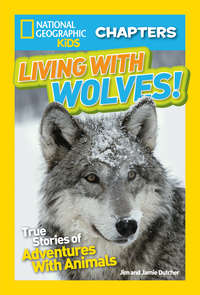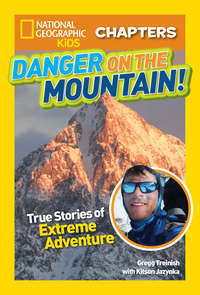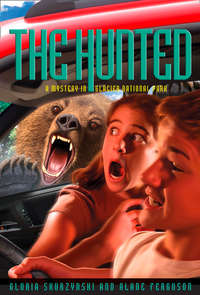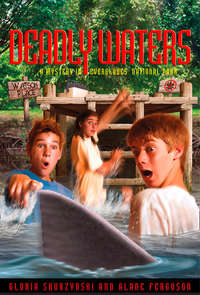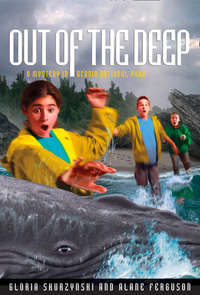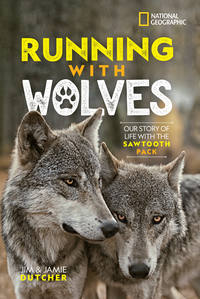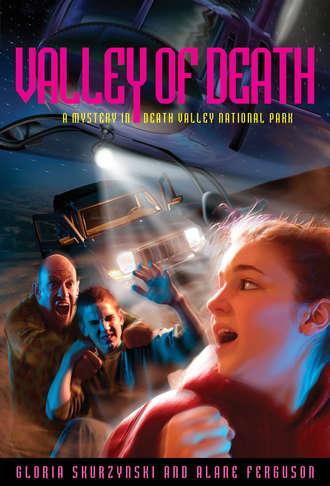
Полная версия
Mysteries in Our National Parks: Valley of Death: A Mystery in Death Valley National Park
His thoughts were interrupted by his mother, who turned to tell them, “This morning I found out something that’s going to interest you, but first I want to give you some background information.”
Trust their mother to create a buildup like that and then make them wait for the exciting part. “Go ahead,” Jack said.
“As you know,” Olivia began, “I’m here because a few desert bighorn sheep have died mysteriously. There were no outside signs of trauma on the sheep, so we’re suspecting it might have been something they ate, or an infection transmitted to them from some other animal. Sheep are fairly sensitive to diseases from other species.”
Ashley leaned forward, interested, as always, in endangered wildlife. Leesa stared straight ahead.
“They found three sheep that had been dead long enough that not much remained of the carcasses—it takes no more than two days for even a large carcass like a sheep’s to be picked clean, down to the skeleton, by coyotes or ravens or mountain lions or all of the above. But they found one sheep in the throes of death, and were able to get a blood sample before it died. That’s what I’m waiting for—the analysis of that blood sample.”
Olivia seemed to be taking longer than usual to reach the point, but from the look on her face, she was getting closer.
“Well, now,” she said, “bighorn sheep don’t have many real enemies, but they do have competitors for food and water—the burros.”
“You mean like the gold miners brought in a long time ago?” Ashley chimed in. “The ranger was telling me all about them. When the mines ran out and the miners gave up and went home, they left their burros behind, here in Death Valley.”
“Right. And the burros multiplied and multiplied and multiplied some more until there were several thousand of them in and around Death Valley. They’re tough, feisty little critters that can live in a climate like this, but when there got to be so many of them, they ruined the area for the bighorn sheep. The burros trample vegetation and pollute the water supply.”
Jack thought his mother should have been a schoolteacher. Nothing delighted her more than explaining things to kids, especially if the subject happened to be animals. Her eyes would light up, and she’d make everything come alive. But maybe that was because she was talking about animals—her real love.
When Olivia handled any species—dogs or wolves, elk or deer, horses or even manatees—her touch was expert and yet gentle. It was as though animals knew they could put their trust in her. And so did the foster kids who stayed with the Landons. They found Olivia sympathetic and understanding.
She continued, “Since burros are exotic animals—” Olivia interrupted herself to explain to Leesa, “That means they aren’t native to Death Valley. And because they had a bad impact on the ecosystem and the desert bighorn sheep, National Park policy decreed that the burros had to go.”
“How’d they get rid of them?” Jack wanted to know.
A shadow crossed Olivia’s face. “A lot of them were removed by direct reduction. That’s a polite way of saying they were shot. Others were trapped and removed. Then, in the 1980s, the park joined with the Bureau of Land Management in an Adopt-a-Burro program. People could adopt them and take them home to ride, or for work, or just for pets—but not, heaven forbid, to sell to slaughterhouses.”
Leesa moved forward, listening intently.
“How’d they get the burros, Mom?” Ashley asked. “Did they come here to the park and say, ‘You! The brown burro with the big ears. I’ll take you.’”
Steven laughed at that. “I wish it was that easy. I used to round up horses when I lived on a ranch, and they never moved along without an argument.”
In Zion National Park, Jack had watched his father capture a wild horse, but that wouldn’t have qualified as a roundup. “Is that how they get the burros for adoption?” he asked. “They round them up?”
“Uh-huh. Of course, they can’t capture all of them that way,” Olivia explained. “The ones that live way up in the mountains may be too hard to reach and—well, sometimes they still have to rely on direct reduction.”
“Shooting,” Leesa murmured.
“It’s an emotional issue that nobody likes to deal with,” Olivia explained, “but you have to realize that wild burros tend to damage the environment pretty badly, especially for the bighorn sheep….” Then Olivia brightened. “But wild burro roundups save the lives of anywhere from two to three hundred burros a year. And guess when the next wild burro roundup is going to happen—right here in the park. The day after tomorrow!”
She’d finally made it to the exciting part, and it really had been worth the wait. That is, if—“Will we still be here? Where in the park? Can we watch it?” Jack and Ashley demanded, peppering their mother with questions.
“Yes, we’ll still be here, and to your last question, maybe,” Olivia answered. “Or maybe not. These roundups are carefully organized by the park and the BLM, with trained wranglers and helicopters that herd the burros down from the mountains and into corrals. Still, if we’re real lucky, and if we promise to stay far out of the way—” She turned farther in her seat to ask, “Would you like that, Leesa?”
Leesa’s expression was hard to read. “Yesterday,” she began, “Jack and Ashley said that every living creature on Earth has value. Now you just told us that park rangers used to shoot wild burros. So if it’s wrong to kill coyotes, why wasn’t it wrong to kill burros?”
The silence that followed was broken only when Olivia murmured, “It’s complicated. Coyotes are native to the park. They’ve always been here. Burros were brought here. They are the outsiders, and the Park Service feels that exotic species need to be removed.”
“I just don’t see why there always have to be two different sets of rules for everything,” Leesa told them. “I’m never sure which one is right.”
“It isn’t two different sets of rules,” Olivia explained. “It’s one environmental policy. The Park Service has been given a mandate to preserve and protect certain areas of our country for all Americans to enjoy. That means these areas must be kept exactly as nature created them. Nature didn’t intend for burros to live in Death Valley. They’re interlopers—outsiders. They have to be removed, but the removal is carried out in the most humane way possible.”
Leesa didn’t look convinced.
CHAPTER THREE
Peering through the window, Jack stared across the barren valley floor toward the Funeral Mountains in the distance.
What would it be like to get lost in that wilderness, to wander without food or water—no, food wouldn’t really be a problem. Before a person could starve to death, he’d die of dehydration.
The thought of wandering in the desert reminded Jack of the gift he’d received from his parents a few months before on his 13th birthday—a perfect present, considering all the traveling his family did to the different national parks. He grabbed his backpack, opened it, and took out one half of the gift. It felt good in his hands, with a nice heft to it. After he pressed the button that turned it on, he sat watching the little red light that pulsed on and off like the beacon on top of a police car.
“What’s that thing?” Leesa asked.
“A two-way radio. Which means there needs to be another one just like it for it to work, and I have it somewhere in here…the other…,” he said, rummaging again in his backpack, “…unit.”
It might have been his imagination, but it seemed that Leesa cringed when he said the word “unit.” She sure was impossible to figure out. Oh well….
“Here it is. Now I’ll show you how these work,” he said, and tossed the second radio to Ashley. “Face the window, Ashley, and I’ll do the same on my side, then we’ll talk real low.”
Ashley caught the handheld radio, then, turning it on, she whispered into it, “Go ahead, Jack, say something. Over.”
Jack pushed down the talk button on his unit and whispered back, “Can you hear me? Over.”
“I can hear both of you whispering anyway, so what’s the point,” Leesa said, unimpressed.
“Mmm, this isn’t a very good test,” Jack answered defensively. “If we were out in the open, we could talk into this thing and hear each other up to two miles away. Wait till we stop somewhere, and we’ll give you a better demonstration.”
From the front seat, Steven said, “How about if we stop here to look at those sand dunes? I want to get some pictures.”
“OK, but not too long,” Olivia told him. “If we’re going to reach Skidoo, we need to get there and be able to drive back in time for my meeting.”
The dunes were worth the stop. From a distance they looked like Egyptian pyramids: golden peaks, with flat sides rising and then narrowing to a point. Closer, they turned out to be huge heaps of sand sculpted by desert winds. “I’m going out to the closest dune,” Jack said, “so I can show Leesa how these two-way radios really work.”
“You better not, Jack—you’re supposed to stay on marked trails in the national parks, and there aren’t any marked trails here,” Ashley warned him.
“In this case it’s allowed,” Steven said. “Wind constantly reshapes the dunes, so footprints left behind by hikers get blown away before the day’s end. Go ahead, Jack. Walk out there so you’ll give some perspective to my pictures of the dunes.”
“But make it quick, please,” Olivia told him.
Jack tried to run fast, but running in sand was like being in a dream where you want to get away from something that’s chasing you, but you can only move in slow motion. With every step he kept sinking into the soft sand; finally, after he’d gone about a hundred yards, he gave up. “Ashley, do you read me?” he asked into the radio.
“Read you loud and clear. Say something else, and I’ll let Leesa hold this handset so she can hear you, too.” In the distance, he could see Ashley hand the radio to Leesa, instructing her to press the button while she spoke into it.
“Hi, Leesa,” he said. “I have sand in my shoes.”
“I heard that,” Leesa answered. “This thing’s really cool. But your mother says you’re supposed to come back here.”
“Be right there. Over and out.”
At the Land Cruiser, as Jack was dumping sand out of his shoes, Steven exclaimed, “Hey, guys, look at those dust devils to the west of us!” Less than a mile ahead of them, wind had whipped sand and dust into half a dozen high whirlwinds that danced on the rim of the hills, all in a row, like a chorus line of phantoms.
“What would it be like in the middle of one of those things?” Ashley asked.
“Hard to breathe,” Steven answered. “And you couldn’t see much. Dust devils are like little tornadoes, but not as violent. So if you were inside one of those baby twisters, you wouldn’t get sucked up like you would in a tornado, but it wouldn’t be much fun.”
“OK, guys, we better go,” Olivia urged. “There’s a restaurant up ahead a little way, but if no one’s too hungry, I think we ought to keep going and see Ashley’s ghost town first, then we can eat on the way back. That way, if we’re running late, we’ll just pick up a pizza and take it with us.”
Since they’d finished breakfast not much more than two hours earlier, everyone agreed to that plan. The drive was already turning out to be longer than they’d expected, and after another half hour Ashley yelled, “Stop the car!”
“Why? Are we at Skidoo?” Jack wanted to know.
“No, not yet, but Dad—you gotta get a picture of those rocks. Do you see them? They look like ghost heads,” Ashley declared. “Like a whole lot of skulls lined up in a haunted house.”
Squinting a little, Jack guessed he could see what she was talking about: A thick, dark, craggy layer of rock rested on an almost white layer at the top of a high cliff. The dark rock had eroded into shapes that Ashley, with her big imagination, saw as skulls, probably because shallow caves in the cliff face looked like empty eye sockets above screaming mouths. It would make a great place for a Halloween party.
“Death, death, everywhere you look,” Leesa murmured. “This place is depressing.”
Since Steven’s camera was still on the front seat where he’d put it after photographing the dunes, he picked it up to focus on the ghost heads. Not too far behind them, a person on a motorcycle stopped along the side of the road, probably figuring there must be something worth photographing. That’s what happened all the time in the national parks: Someone stopped to take a picture, and it quickly started a chain reaction, every following driver slowing down or stopping to see what was happening. At Yellowstone, if a bear or a moose ambled across a field, traffic could get backed up for a quarter mile.
In a few minutes Steven had taken the pictures Ashley wanted, and they were on their way again. Jack noticed the motorcyclist following, keeping a good distance behind them. He couldn’t tell whether it was a man or a woman. Leesa kept turning around to glance at the motorcyclist. Jack wondered why she seemed so interested, but he didn’t ask. Maybe she just liked motorcycles.
The drive seemed to go on and on, or maybe it just felt longer because Olivia kept looking at her watch. “According to the map,” Jack said, “we ought to be getting close to the turnoff for Skidoo. And there’s the sign. Turn left, Dad.”
The first hundred yards or so of the dirt road were fairly smooth, but then it turned into a washboard that rattled their teeth. “I hope it’s going to be worth it,” Ashley said, her voice quavering from the jouncing. “I mean, it’s my fault that we’re coming way up here on the top of the mountain. The ranger told me it was a special place to visit, but I—I hope—“
“Don’t worry about it, sweetie,” Steven told her. “I’m looking forward to it because I’ve never photographed a ghost town before. Hey, maybe I can get a picture of a real ghost.”
“Then you could sell it to the National Enquirer,” Jack answered. “It would rate the front page.”
Since the vehicle’s jouncing made their voices jiggle, no one said much more until they rounded a curve in the road and came upon the ruins of the ghost town—although the only ruins they could see were old mine structures, with their walls collapsed and their boards faded or fallen down on the slopes. No houses, no stores, no sign at all of the thousands of people who’d once staked their lives and fortunes on hopes of striking gold in these mountains.
“This is it?” Jack asked. He wondered why they’d bothered coming here. There wasn’t much to see. He started to walk along the pebbly, sandy, barren surface, and accidentally kicked a rusty tin can. When he reached the place a few yards ahead where the can had landed, he stopped to pick it up.
It was bent in the middle, squeezed into an uneven oval shape—the dusty inside coated with a residue of sand, the outside mottled with colors from copper to rust to the hue of dried blood. As Jack held the dented old can in his hand, scenes began to take shape in his mind. Some old miner must have opened this long ago—maybe a hundred years ago—to eat the beans inside. With pick and shovel, the man had dug inside the earth, hoping his miner’s lamp would catch a flash of gold in the rock that surrounded him. Sweating, cursing the heat, drinking lukewarm water from a bucket, he’d have swung that pick again and again, waiting for good fortune to shower down on him. At the end of long hours of digging, he’d have gone home to a shack or a tent and opened a can of beans for his supper. This can.
“Can I have that?” Ashley asked. “If I tell you a story about Skidoo, and about the ghost that lives here, will you give me the can?”
“No, you can’t have it,” he told her. “It’s like anything else in a national park—you leave things where you find them. I’m putting it back.”
Leesa, who’d overheard them, said, “You know a story about this place, Ashley? I’d like to hear it.”
By tradition, Ashley was the family storyteller. Before they visited each national park, she’d check out library books to learn all she could about the place. Once they reached the park, she would talk to park rangers, asking questions. They always seemed glad to share stories about park history or about their own personal experiences, like the ranger in Glacier National Park who’d told about her terrifying encounter with a grizzly bear.
Конец ознакомительного фрагмента.
Текст предоставлен ООО «ЛитРес».
Прочитайте эту книгу целиком, купив полную легальную версию на ЛитРес.
Безопасно оплатить книгу можно банковской картой Visa, MasterCard, Maestro, со счета мобильного телефона, с платежного терминала, в салоне МТС или Связной, через PayPal, WebMoney, Яндекс.Деньги, QIWI Кошелек, бонусными картами или другим удобным Вам способом.


